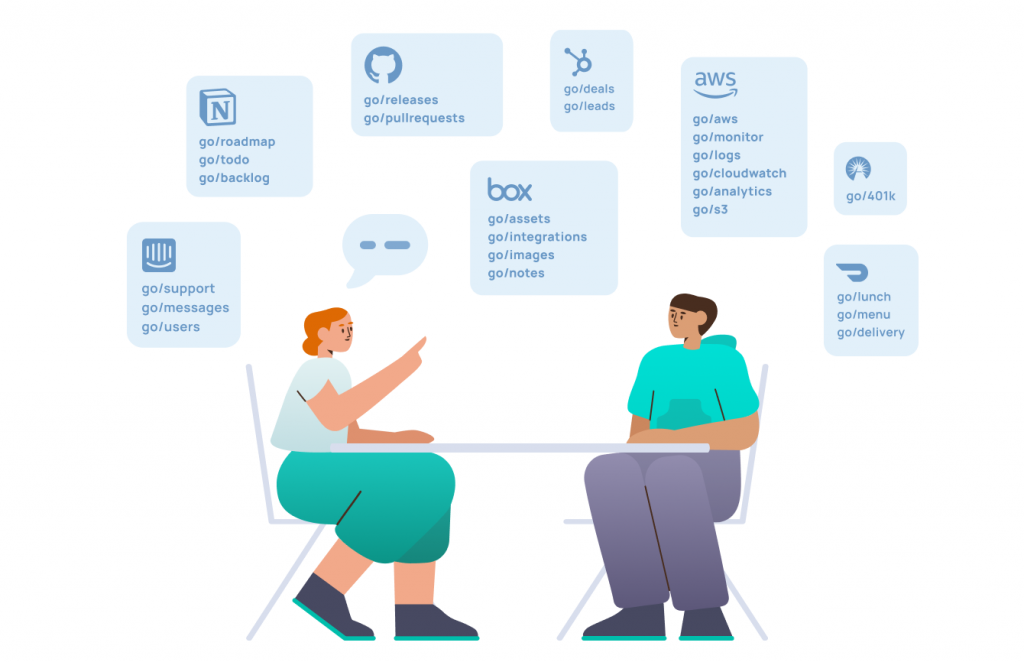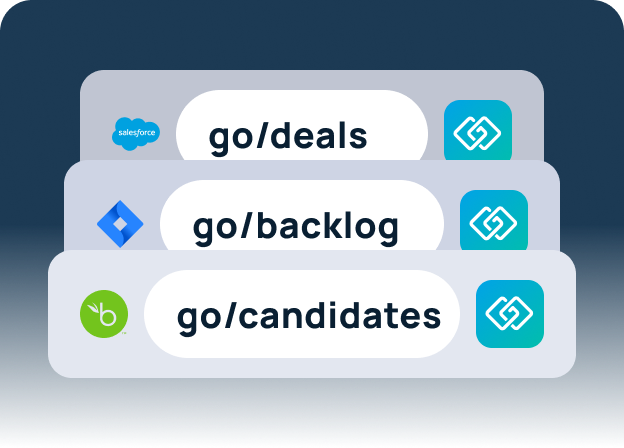You landed the role of a lifetime at a top company. It’s a sweet deal: a hybrid office model means that you can work remotely or in the office, you have total autonomy to work when and how you’d like, and you’re surrounded by innovative people. Onboarding remotely was a breeze—as expected for a company like this—because you had easy, instant access to all of the knowledge you needed. Now, you’ve begun work and have the same level of organization and knowledge management.
Your company knows that today’s workforce and workplace are changing at lightning speed. Employee turnover is at an all-time high. Employees work remotely across time zones and when it’s convenient for them. When it comes to knowledge sharing, therefore, no one person can be the information gatekeeper (aka bottleneck) anymore. Knowledge must be easily, and instantly accessible to everyone within that company.
What if that one highly organized employee who knows where to find every company document, and always shares access, or links is busy, or has left the company? Or, if a past employee spent decades collecting research for the company, what happens to that invaluable data when they leave? Does the company have to start again from scratch? How do you find, and access that knowledge?
Enter Internal Knowledge Management.
Knowledge management is the process of capturing, distributing, and effectively using knowledge. Knowledge management is supported by creating a culture that fosters sharing of knowledge and collaboration, and using the necessary tools to support it. Here’s how internal knowledge management can be used to onboard, train, and retain new hires and gig contractors. This is more essential among these ever-changing workforces and helps companies adapt to hybrid offices and remote workplaces.
The Power Of Internal Knowledge Management As Companies Transform
Knowledge is power. Or it can be, but only if you can find and access it. Otherwise, company knowledge is a messy and disparate collection of facts, insights, documents, spreadsheets, videos, emails, chats, links, and findings. That’s about as useful as Big Data is without a tool to access, and make sense of it. This is especially true as companies grow or shift with ever-changing workforces and hybrid office models, and develop more and varied resources.

Internal knowledge management allows information to be shared easily, and openly within a company. It flows like water without slowing, or blockages between everyone at the company—including external contractors, remote workers, new hires, and so on.
When done right, knowledge management can:
- Improve remote work processes
- Streamline and speed up onboarding and training
- Disseminate ideas across remote teams instantly
- Prevent knowledge loss despite company turnover
- Increase team productivity
- Decrease wasted time and resources waiting for links and access
- Improve employee’s overall experience and engagement at work
- Build on past learnings and promote growth
- Create transparent and open company cultures
- Connect remote teams and external workforces such as contractors
As more companies move online to remote and hybrid models, while also navigating high turnover and flux contractors—all of which are the present and future of companies— internal knowledge management is critical for both keeping staff connected to their daily work and expediting onboarding faster.
Knowledge Sharing Among Shifting Workforces And Workplaces
Since the pandemic, no one wants to go back to the office five days a week. Employees want choice and flexibility. Over 90% of U.S. employees currently doing some remote work want the ability to work remotely online after the pandemic. Nearly 40% of them would look for another job if they’re not given the option, according to Gallup. Likewise, nearly 20% of Americans say they are considering switching to full-time freelance work, according to Upwork.
All of this is well, and good so long as companies adapt quickly. Adapting to remote, and hybrid office models goes deeper than giving both schedule and office space flexibility, of course. It requires rethinking the tools, resources, and knowledge sharing used on a daily basis.
Remote Work And Internal Knowledge Management
If employees want workplace flexibility, then everything must become easily accessible. This includes how remote and in-person employees share knowledge amongst each other. If remote employees can’t find what they need to do their work, then they can’t perform at their best or most productive. They’re working with gaps in their knowledge base.
Let’s say that a remote worker in one time zone needs a link to a database that someone in another time zone hasn’t shared with them. How much productivity, time, and resources are wasted while the first employee waits for the other to check their emails–possibly after hours and provide a shared link? Or do they just make do, working with the limited scope of knowledge that they do have access to now? Talk about frustrating, and unproductive for everyone! You may be surprised at how often this happens.
Internal knowledge management has the power to streamline search processes so that these resources are always accessible to any employee, or contractor whenever they need it.

Onboarding And Training New Hires Remotely And Online
Since the Great Resignation, companies are scrambling to hire replacements and the trend is expected to continue. According to the U.S. Bureau of Labor Statistics, 4 million Americans quit their jobs in July 2021, and surprise surprise, a record-breaking 10.9 million jobs opened up by the end of that month. It’s fair to say that Human Resources teams have been overwhelmed with attracting, vetting, and onboarding new hires and contractors since.
The catch is that even though the pace of employee turnover is speeding up, new hires still require the same thoughtful and thorough onboarding and training as ever before. In fact, they may need more hand-holding. As a company grows its knowledge base, there is more to learn and lots to digest. They’ll likely have many questions that they need answers to (and soon!).
Likewise, onboarding and training materials now have to engrain the company culture more deeply than ever before. With global teams and remote or hybrid offices, many team members are in different cities and time zones. They may never have the chance to meet their fellow employers in person so they have to learn the company culture in a whole new way—digitally and remotely.
Something has to give!
Knowledge Sharing For Onboarding And Training Remote Teams
That’s how knowledge sharing can help. With an effective knowledge management tool like GoLinks, new employees can easily source and access all of the onboarding information, such as FAQs, brand and company culture guidelines, new hire forms, and training materials needed for a swift and seamless onboarding experience. It also lets users create go/links to their tools which ensures that new hires can quickly access whatever tech stack they need.
A key component of GoLinks is its intuitive discoverability. This way, new and existing employees never have to bother HR teams or leaders to ask where information is. It reduces information silos and lets employees see what other teams are working on to help instill that knowledge is shared. Onboarding is, after all, the first and most lasting impression that new hires have with every company! Make it smooth, digital, and user-friendly, just like the products and services that your company makes are.

Prevent Knowledge Loss Despite Employee Turnover
With such high turnover comes the potential for lost information and knowledge. It would be such a shame if all of that time, energy, resources, hard work, brainpower, and effort went to waste with lost knowledge because an employee moved on! Unfortunately, this is the case for so many companies.
According to Harvard Business Review, between 2020 and 2021, resignation rates increased by more than 20% for employees between 30 and 45 years old. When those key team members leave companies, there is often a huge loss of processes and documentation. This includes how and where to access that information. If a tenured employee leaves the company, the standard two-notice period isn’t going to be sufficient enough to train their replacement. The result is that companies are left with huge gaps in their resources and knowledge databases.
Internal knowledge management helps protect shared, open knowledge bases within companies, regardless of turnover. When no assets get lost, then companies never have to backtrack, and waste time to repeat what they already had.

Companies can tap into knowledge sharing, and build on their existing foundation of resources. They continue to grow, and thrive in spite of changes happening in the workforce and workplace. In fact, it may even help add to the richness of the original resources, by bringing in new and fresh ideas, and minds!
If knowledge bases aren’t affected by the sweeping changes happening around them, then companies can continue to move forward at a steady, productive pace, regardless of who’s driving and fueling the company.
Invest In Internal Knowledge Management Systems
Knowledge management systems like GoLinks help companies improve more than just their employee’s productivity. Regardless of changes to the work environment, and among workforces companies simply cannot afford to lose entire knowledge bases, or slow their forward momentum. It’s time to foster open, and shared knowledge bases.
Want to experience first-hand how GoLinks can improve your knowledge management processes—and take your business to the next level in the process?
Access and share resources instantly with GoLinks
Try for free














